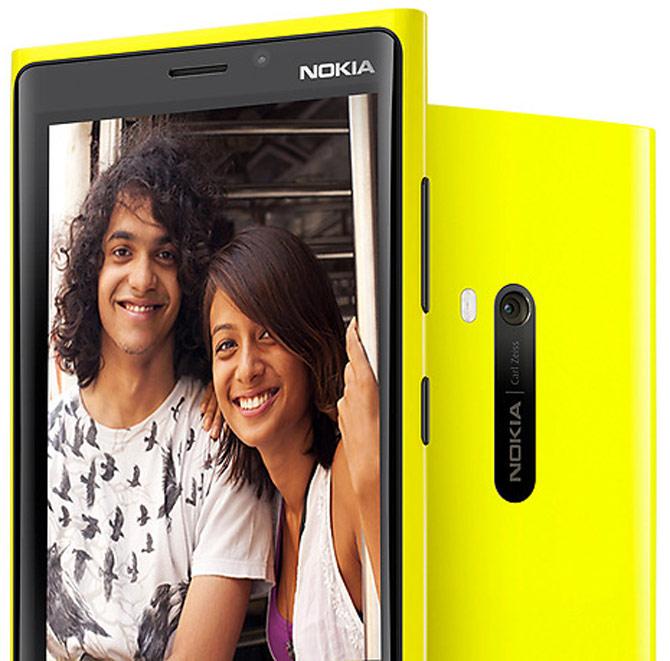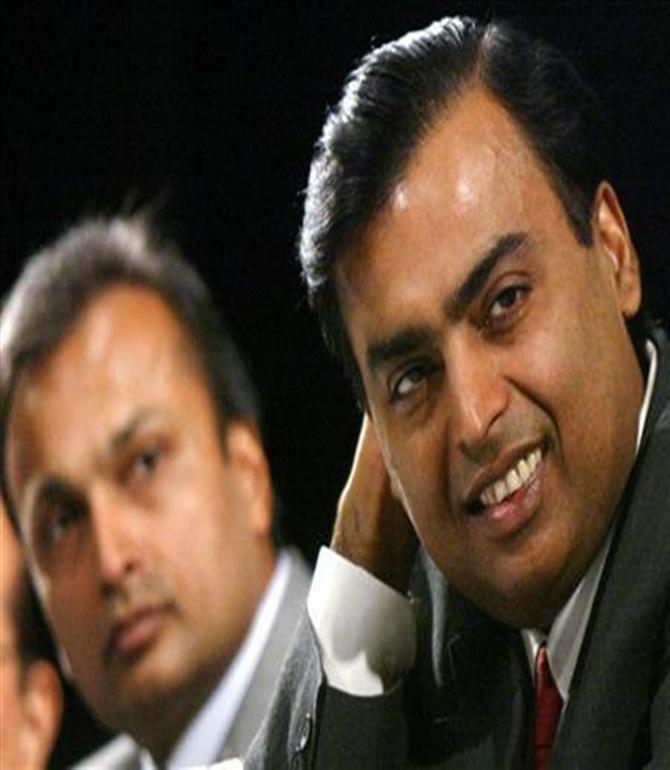Photographs: Reuters Abhineet Kumar in Mumbai
When Reliance Jio launches fourth generation (4G) services later this year, it will be completely different from what one imagined in June 2010, when its parent, Reliance Industries Ltd (RIL), had acquired 20 MHz pan-India spectrum in the 2,300-MHz band from Infotel Broadband.
The buyout, estimated at Rs 12,850 crore (Rs 128.50 billion), had given RIL the licence to launch 4G high-speed internet services on mobiles, using time-division long-term evolution, or TD LTE, technology.
This made little sense to market analysts who didn’t see much opportunity for such services without the offering of voice.
That was the reason why Infotel was the sole winner of such a licence on a pan-India basis.
...
Reliance Jio goes for the kill
Photographs: Reuters
Bharti Airtel, India’s largest telecom services provider, acquired the licence only in four of the 22 circles - Kolkata, Karnataka, Punjab and Maharashtra (excluding Mumbai).
And, their gradual launch hasn’t brought any substantial result so far. But in October 2013, Reliance Jio surprised the market by securing a unified licence that enabled it to offer voice, along with the 4G data service, providing Rs 1,673 crore (Rs 16.73 billion) of additional fees to the government, a move that showed a change of stance by the Department of Telecommunications (DoT), which had earlier earmarked the 2,300-MHz band only for 4G data service on TD LTE technology.
Though that improved Reliance Jio’s capability, it still wasn’t strong enough to lure customers in an established market, as the quality of voice on the 2,300-MHz band was poor.
But now, with an application to bid for spectrum in the 900- and 1,800-MHz bands, the company looks set to deliver a stinging blow to competition.
...
Reliance Jio goes for the kill
Photographs: Courtesy, Nokia
“The company has worked out a strategy to use 1,800-MHz spectrum as the primary one to offer voice and 4G broadband services to consumers,” said a consultant involved with the company’s launch plans.
“It wants to use the 2,300-MHz band only to supplement its service to enterprise customers in high-population-density business districts.”
Typically, enterprise customers require very high bandwidth, and it is expected the 2,300-MHz band will come in handy here. As the coverage proposition or cell-site radius for 2,300-MHz spectrum is low, it will be efficient to use it in high-population-density business areas.
The company didn’t respond to an email query seeking confirmation of the strategy.
In the last annual general meeting of the company a senior executive involved with the launch plan of its telecom service said, “Our offerings will be a combination of what Omnitech, Verizon and Google offer."
...
Reliance Jio goes for the kill
Photographs: Courtesy, Apple
Omnitech InfoSoultion is an information technology outsourcing and managed services company that provides business-to-business solutions, while Verizon is a full-scale mobile service provider in the US with offerings as diverse as Wi-Fi, wireless, internet television and LTE (long-term evolution) technology-based mobile
In the upcoming spectrum auction, DoT intends to auction 403.2 MHz of cumulative spectrum in the 1800 MHz band, that is higher than the Telecom Regulatory Authority of India (TRAI) suggestion of 285 MHz.
In fact the spectrum being auctioned in 1800 MHz band is a 80% of total spectrum available with the government. This is also a deviation of prior stance of DoT which was to auction a limited quantum of spectrum in the interest of better price discovery.
...
Reliance Jio goes for the kill
Image: Mukesh Ambani (R) with brother Anil Ambani.Photographs: Reuters
In the 900 MHz spectrum band, DoT is offering 16 MHz in Delhi and Mumbai and 14 MHz in Kolkata. This is possessed by incumbents in the respective circles.
Now with the technology in hand, Mukesh Ambani's plan to re-enter the telecom business after he parted his earlier venture to younger brother Anil Ambani, looks quite robust.
The company is also putting a lot of focus on its product offerings to differentiate itself from the incumbent players.
Early this month the company showcased its upcoming offerings such as wireless machines that measure blood pressure and record data in the cloud at IIT Mumbai's Techfest.







article